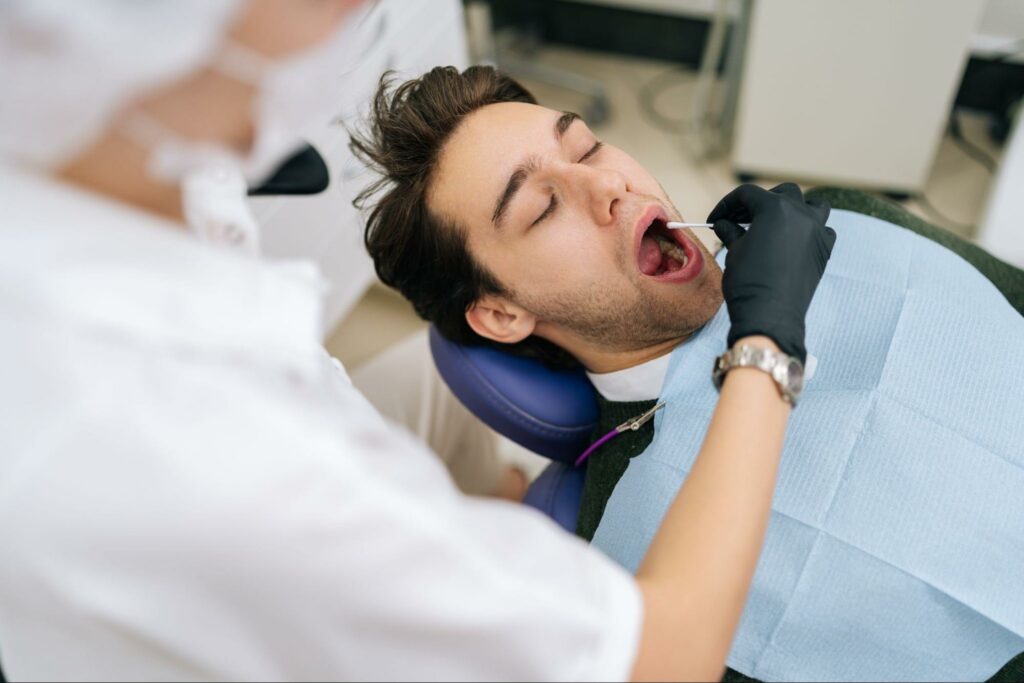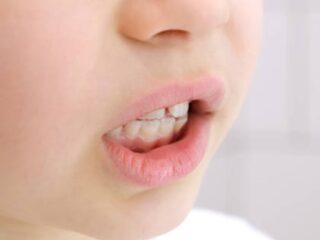
Despite the importance of dental health to overall well-being, the influence of genes on teeth and gums is often underestimated. Unraveling the genetic factors that contribute to dental health holds promise for the development of more effective preventive measures and treatments.
The Genetic Basis Of Tooth Development
The formation of teeth is a complex process directed by a multitude of interacting genetic signals. These signals oversee every stage of tooth development, from the initial formation of the tooth bud to the final positioning of the fully formed teeth.
Crucial to the development of tooth enamel are genes like AMELX, ENAM, and MMP20, which are responsible for the proteins that make up the enamel matrix. Moreover, signaling pathways, notably BMP and WNT, are essential for controlling the growth and specialization of the cells within the developing tooth bud.
Mutations in these genes can lead to dental anomalies, such as the number, size, and shape of teeth, seen in conditions like ectodermal dysplasia.
Hereditary Conditions Affecting Teeth
Genetic disorders such as amelogenesis imperfecta (AI) and dentinogenesis imperfecta (DI) demonstrate the consequences of genetic alterations on tooth development and structure.
AI specifically impacts the formation and quality of tooth enamel, frequently resulting in teeth that are discolored, fragile, and prone to breakage due to changes in enamel hardness and appearance. On the other hand, DI affects the dentin layer of the teeth, causing them to appear discolored, translucent, or opalescent. Teeth affected by DI are more susceptible to wear and damage due to their compromised structural integrity.
Research is increasingly focused on the specific genetic mutations responsible for these disorders, which can vary widely even within the same condition, influencing their treatment approaches. Gene therapy offers a promising avenue for directly addressing the genetic errors at the root of these conditions, potentially restoring normal function and appearance to affected teeth.
Genetic Influence On Gum Health
Periodontitis and other gum diseases are significantly influenced by an individual’s genetic makeup. Genes affecting the immune system’s response to inflammation, such as those in the interleukin family, play a critical role in how the body responds to periodontal pathogens.
Variations in these genes can predispose individuals to more aggressive forms of gum disease or, conversely, offer a degree of natural resistance. Modern genetic testing can help identify these risks early.

Park Haven Dental and other reputable clinics offer personalized preventive care that adjusts factors such as the frequency of dental cleanings and the use of specific therapeutic mouthwashes.
The Role Of Saliva In Dental Health
Saliva is essential not just for dental health but for overall oral hygiene and digestive processes. It helps in mechanical cleansing, buffering acids produced by oral bacteria, and initiating starch digestion. Your genes hold the blueprint for your spit, and how thick, fast, and enzyme-rich it flows can dramatically affect your smile’s health.
Variations in genes like AQP5, which dictate water movement in your salivary glands, can influence the amount of saliva produced, impacting your risk of oral diseases. Scientists are delving into these genetic differences to develop treatments for conditions like dry mouth (xerostomia), which significantly increases the chances of cavities and gum disease.
Genetics And Oral Microbiome
The composition of the oral microbiome, which is crucial for maintaining oral health, is partly genetically determined. The microbiome’s balance can affect everything from the onset of dental caries to the development of periodontal disease.
An individual’s genetic makeup influences the way their immune system responds to the microorganisms present in the mouth. In some cases, genetic factors may cause the immune system to react too strongly or too weakly to the presence of oral bacteria.
Progress in DNA sequencing technologies and genomic research is shedding light on the complex interplay between a person’s genes and the microbial communities in their mouth.
Improving Dental Health
You can unlock stronger oral health by knowing your genetic risks and adjusting your dental routine. Here are some approaches to consider:
- Genetic Testing And Assessments
Genetic tests can pinpoint vulnerabilities to common issues like gum disease and cavities or even identify more serious hereditary conditions. By understanding your genetic risks, you and your dentist can craft a tailored oral care plan to maximize your dental health.
For those with a family history of dental problems, early genetic screening allows for proactive interventions that can significantly lessen the impact of these conditions.
- Tailored Dental Care Regimens
Based on your genetic risk, your dentist might recommend specific preventive measures. For example, if you’re genetically predisposed to periodontitis, more frequent professional cleanings and specific types of mouthwash or toothpaste might be suggested.
For those with a genetic predisposition to dental decay or gum disease, treatments can be tailored. This might include the use of specific fluorides or antimicrobial agents that are more effective based on your genetic profile.
- Diet And Nutrition
Your diet can have a significant impact on your dental health. Depending on your genetic predispositions, increasing intake of certain nutrients like calcium, phosphorus, vitamin D, and vitamin C can help strengthen tooth enamel and support gum health.
For those with a high genetic risk of cavities, reducing sugar intake and acidic foods can help minimize the risk.
- Enhanced Monitoring And Technology
Regular dental check-ups are crucial, especially for those with genetic susceptibilities to oral diseases. Advanced imaging and monitoring techniques can detect early signs of problems before they become severe.

Technologies like digital imaging and laser dentistry can be particularly beneficial for the early detection and treatment of dental issues that you might be genetically inclined toward.
Conclusion
The exploration of genetics in dental health opens up a myriad of possibilities for better understanding and managing oral health issues. The insights gained from recent research not only promise more targeted and effective treatments but also pave the way for personalized dental care that could significantly alter the landscape of dental medicine.












